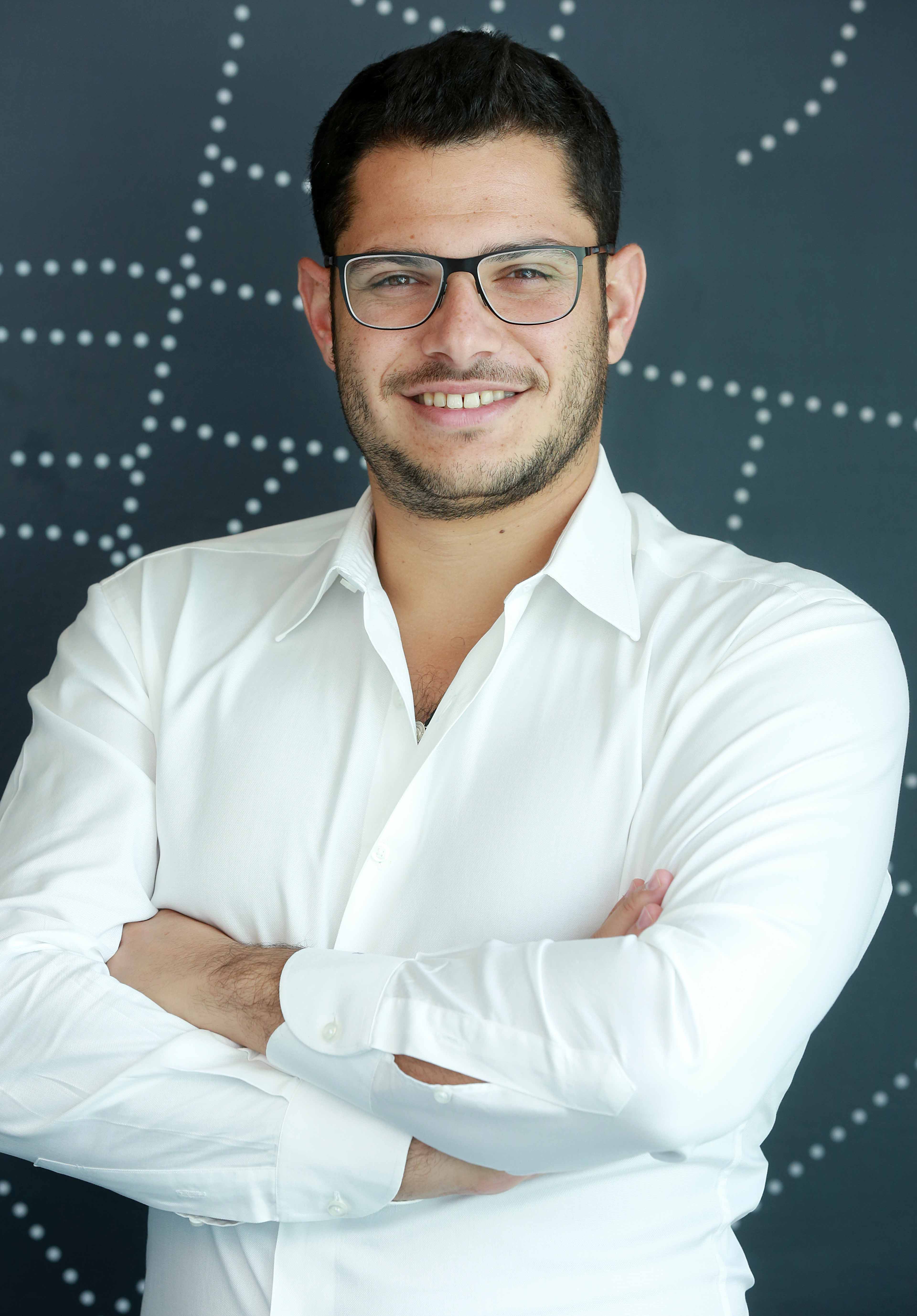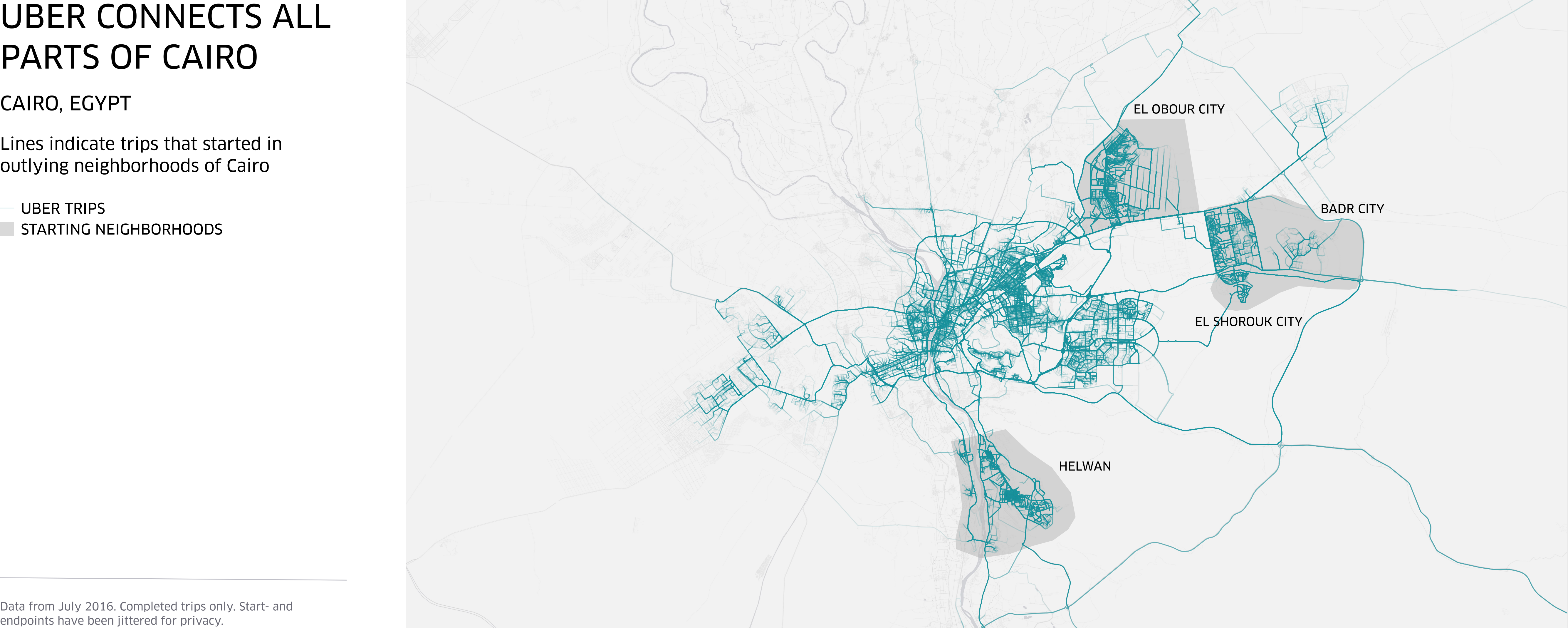Uber’s Cairo boss says ridesharing could re-shape Cairo’s streets while creating jobs and economic opportunity
When cars were first invented, people had to walk in front of them waving red flags as a safety measure. It seemed a sensible way to regulate a new technology at that time. But the earth moved onward—quite literally—and the regulations changed. Today, there are an estimated one billion cars on the world’s roads; and the number is growing.
A car is one of the most expensive things you will ever buy. And all those cars need parking spaces. Technology is again starting to transform how we move around our cities—now removing the need to ever own a car.
This change is happening quickly. Uber—an app through which people can connect with drivers to get from A to B in a safe, reliable and affordable way— is now available in almost 500 cities across more than 70 countries.
Just six years ago, mobile phones lacked the battery power for Uber to work. Regulatory reform, on the other hand, has been much slower in many countries. Based on current dialogue, however, we are hoping for Egypt to lead the way for the MENA region.
When regulated in a way that puts consumers first, apps like Uber can help improve the quality of life in cities.
Citing the World Bank’s 2014 report, the economic cost of traffic congestion in Cairo could be as high as 4 percent of GDP each year. This means an economic cost to Egypt of up to EGP 50 bn (USD 5.6 bn) a year. The report estimates traffic volumes of up to 7,000 vehicles per hour per lane on major roads such as the Ring Road and the 6th of October bridge.
Failing to deal with this congestion will create more pollution as well as a significant drag on economic growth.
Unsurprisingly people’s demand in Cairo for services such as Uber is high. For drivers, too, the opportunities are enormous because work on platforms like Uber fits around their lives: They determine where and when they work—or don’t work. Seventy percent of drivers now use Uber part-time to supplement their income from elsewhere; 40% were completely unemployed beforehand. Others have successfully gone from driving one car to becoming small business owners employing others. As of August 2016, Uber had reached a milestone of 30,000 drivers using the Uber technology for work, for just that month alone.
Digital on-demand services like Uber can have a very clear positive impact for local and national governments, too, by transforming sectors of the economy where much of the revenue has been cash-in-hand and off-the-books. With employment in the informal sector in Egypt exceeding 40%, much of that revenue is also part of the shadow economy. By contrast every Uber fare is electronically recorded, transparent and traceable. In cities around the world, we are working with the tax authorities to create a system that would allow self-employed workers like the drivers using Uber to automatically declare their income online, at the push of a button.
Across the globe, we are also seeing various government bodies sign partnerships with the ridesharing industry in support of the economic and social benefits that ridesharing can offer. Take for example, the Sindh Government, in Pakistan, which last week signed a memorandum of understanding with Uber in support of the economic and social benefits that ridesharing can offer. The same was done in June with the Latvian Ministry of Economy. As a result, these cities have raced to the front of countries looking to embrace the growing collaborative economy, competing with places like the US and the UK to be first to provide clear rules on how such services should operate.
At the heart of these new rules is the belief that one citizen should be able to give another citizen a ride across town, so long as safety and consumer protection regulations are met.
There is a real alternative to a world that looks like a car park and moves like a traffic jam. Together, Uber and Egypt can ensure that the on-demand economy increases transportation choices, delivers new economic opportunities for thousands of people, and improves lives in Egypt.
We hope to respond to the enthusiasm for Uber already in Egypt by soon being able to reach a regulatory framework that fairly sustains the tens of thousands of economic opportunities created — and that empowers riders with safe and reliable transportation.
Our vision is for a framework that continues to allow for flexible working hours, part-time jobs, and women’s jobs without being too restrictive or inhibiting in nature. This means lowering the barriers to entry and cumbersome requirements for joining the platform. This ensures more and more Egyptians can participate this opportunity for economic empowerment.
Uber is investing USD 500 mn in Egypt because we believe it has what it takes to be one of the most progressive markets in integrating innovative technologies in its sustainable development programs.
Anthony Khoury is general manager at UBER Egypt.

